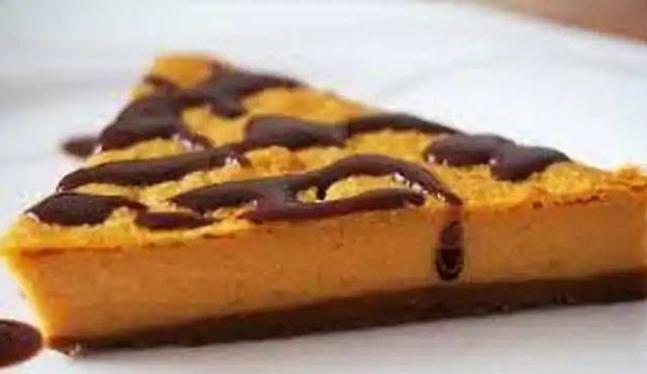

Sections
Highlight

Alekk M. Saanders
Friday, 27 October 2023, 15:22
In English, the name pumpkin originated from the Greek word for 'large melon' which is 'pepon'. The French nasalised the Greek 'pepon' into 'pompon', which the English changed later to 'pumpion'.
William Shakespeare referred to the 'pumpion' in his Merry Wives of Windsor, where vegetable references are in great abundance.
Eventually, American colonists changed 'pumpion' into 'pumpkin.'
However, the Spanish word 'calabaza' comes from a language that was spoken on the Spanish peninsula before the incursion, dominance and spread of Latin by the Roman Empire.
It is believed that after Columbus's discoveries and the Spaniards arrived in Yucatán, a large peninsula in southeast Mexico, they were served a dish called 'papadzules', consisting of corn tortillas dipped into a pumpkin seed sauce. Unsurprisingly, it was immediately dubbed 'food for lords'.
The Spaniards liked it and reportedly brought the nutritious calabaza back home.
Since then, pumpkins have spread throughout the world and diversified over several centuries. Today, pumpkin is mostly associated with Halloween and a dessert pie with a spiced, pumpkin-based custard filling, and the phrase 'When life gives you pumpkins, make pie' became idiomatic.
However, in the Spanish language pumpkin can idiomatically hint something negative, or rather... is used for expressing dissent, refusal, or a failure.
The expression 'dar calabazas' - literally, to give pumpkins - can have two main meanings. More generally, this phrase is used simply to say that someone says 'no' to a proposal, to someone who makes an amorous proposition.
'Dar calabazas' (to give pumpkins) can also mean that a person has failed an exam. For example, José went to the job interview but 'le dieron calabazas'. It means, he was not taken on.
It is interesting that the phrase 'to give pumpkins' has its origins in ancient Greece, where pumpkin was used as an antaphrodisiac.
In this context, much later in the Middle Ages, pumpkin was recommended to ward off lascivious thoughts.
For example, pumpkin seeds were used during religious prayers to remove sexual thoughts from the mind.
In some regions of Europe pumpkin-based dishes were even offered to ward off the suitors of a daughter of the family.
Pumpkins are also quite often associated also with humility. However, this might be due to the Cinderella fairy-tale. And that is definitely another story.

Ingredients
700g roasted pumpkin flesh, 4 eggs, 150g sugar, 200ml whipping cream, 200g fondant chocolate, 25g butter, half a glass of water
Method
Heat oven to 250º C. Beat the eggs with the sugar until thick and foamy. Add the roasted pumpkin flesh and mix until smooth. Whip the cream and fold into the pumpkin mixture.Grease a shallow tin or ovenproof dish and pour in the mixture. Lower the heat to 200º C and bake for 40 minutes or until a skewer poked into the middle comes out clean. Leave the tart to go cold before tipping it out of the tin. Break the tablet of fondant chocolate into small pieces, place in a bowl and add the water. Microwave until melted. Add a tablespoon of butter and mix well. Spread over the top of the tart and chill.
Noticia Patrocinada
Publicidad
Daniel de Lucas y Josemi Benítez (Gráficos)
Jon Garay e Isabel Toledo
Paco Griñán | Málaga
Esta funcionalidad es exclusiva para registrados.
Reporta un error en esta noticia

Debido a un error no hemos podido dar de alta tu suscripción.
Por favor, ponte en contacto con Atención al Cliente.

¡Bienvenido a SURINENGLISH!

Tu suscripción con Google se ha realizado correctamente, pero ya tenías otra suscripción activa en SURINENGLISH.
Déjanos tus datos y nos pondremos en contacto contigo para analizar tu caso

¡Tu suscripción con Google se ha realizado correctamente!
La compra se ha asociado al siguiente email
Comentar es una ventaja exclusiva para registrados
¿Ya eres registrado?
Inicia sesiónNecesitas ser suscriptor para poder votar.